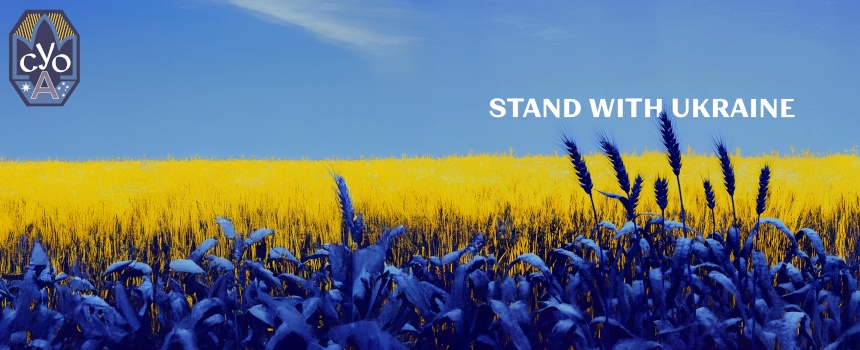The Australian Federation of Ukrainian Organisations (AFUO) has created a working group to apply pressure on the Australian Olympic Committee to support the banning of russian and belarusian athletes from the 2024 Paris Olympic Games.
Working closely with the Ukrainian World Congress and representatives of the Ukrainian Government, the initiative is part of a world-wide campaign to apply pressure on the IOC and national sporting commissions to suspend moves to allow russian and belarusian athletes to compete as ‘neutral athletes’ at the Olympic Games.
The AFUO has been liaising with the Australian Minister for Sport’s office about the issue, holding a meeting with the Minister’s office on 7 March 2023. The campaign will involve letter writing, meetings, rallies and the involvement of prominent sportspeople who support the ban, such as Victor Kovalenko (Head Coach of the Australian Sailing Team) and Malcolm Page OAM, Olympic sailor.
More than 30 countries – including Australia, America, Britain, France, Germany, Canada and New Zealand – have signed a joint statement pledging support for the ban. The Canadian Olympic Committee (COC) has also made a formal announcement that it does not support the participation of Russian and Belarusian athletes in international competitions while the invasion is ongoing.
As noted in the joint statement, there is a strong question how feasible it is for russian and belarusian athletes to compete as ‘neutral’ when they are directly funded and supported by their states. russia uses sportspeople and their success to project an image to the world, just as Nazi Germany did.
It is also well known that many Russian athletes, trainers and coaches are associated with the sport clubs of the Russian Army and of state security agencies. At the 2022 Beijing Olympic Games, 88% of the medals won by Russia were won by sportspeople associated with the Russian army and state security agencies.
Meanwhile at least 220 Ukrainian athletes and coaches have died due to Russia’s war on Ukraine; over 340 sports facilities valued at $250 million have been damaged or partially destroyed; and Ukrainian sportspeople have said many times it is extremely difficult for them to live, train and compete whilst Russia continues to wage war on their homeland.
The campaign also highlights that Russia’s aggression is incompatible with the Olympic ideals. During the 2008 Beijing Olympics, Russia occupied part of Moldova. During the 2014 Winter Paralympic Games in Sochi, it captured the Ukrainian Crimea and part of Donbas. At the close of the 2022 Beijing Winter Olympics, on February 24, with the active support of Belarus, it violated the Olympic truce and launched the brutal full-scale invasion of Ukraine. The situation has continued to deteriorate, with massive Russian bombardment of civilian energy infrastructure and fears of a spring offensive.
The AFUO also has serious doubts that the proposed IOC rules to ban the ‘flag, anthem, colours or any other identifications of these countries’ will be able to be enforced. As witnessed at the Australian Tennis Open only a month ago, despite similar rules enacted by tour organisers, pro-Russian supporters brazenly displayed the Russian flag and wore T-shirts emblazoned with the ‘Z’ war symbol.


